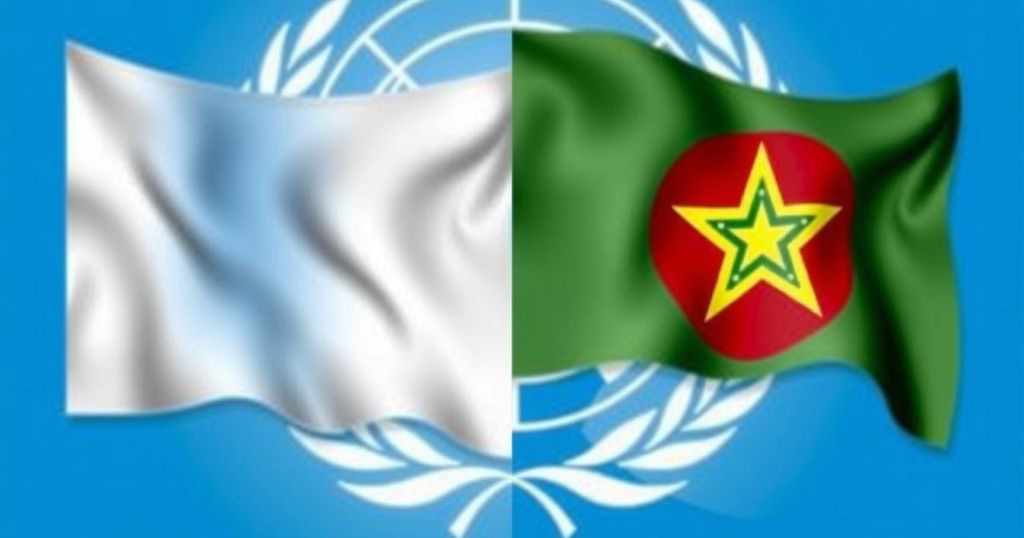Global news
AFRICA, AFRICAN UNION, AFRICAN UNION COMMISSION, ANKARA, AU, DIPLOMACY, EAST AFRICA, ETHIOPIA, EUROPE/ASIA, HASSAN SHEIKH, HASSAN SHEIKH MOHAMUD, INTERGOVERNMENTAL AUTHORITY ON DEVELOPMENT, MOHAMUD, MOUSSA FAKI MAHAMAT, REGIONAL COOPERATION, REGIONAL SECURITY, SOMALIA, SOMALILAND, TURKEY, WORK
Marcus Li
0 Comments
African Union Urges Swift Implementation of Somalia-Ethiopia Agreement
The African Union has urged Ethiopia and Somalia to promptly implement an agreement aimed at resolving tensions over Ethiopia’s access to the sea. The call follows a controversial deal between Ethiopia and Somaliland, causing Somalia to voice concerns over its sovereignty. Turkey facilitated the recent agreement, emphasizing cooperation and a shared goal of regional stability as technical discussions are set for early next year to finalize terms of access under Somalia’s authority.
The African Union has called upon Somalia and Ethiopia to implement a recently negotiated agreement aimed at alleviating tensions between the two nations, particularly concerning Ethiopia’s access to the sea. During the 37th Ordinary Session of the Assembly of the African Union held in Addis Ababa, African Union Commission Chairman Moussa Faki Mahamat highlighted the significance of the agreement and urged immediate action.
Relations between Ethiopia and Somalia have been strained since Ethiopia’s agreement with Somaliland, Somalia’s breakaway region, to lease coastal territory for a port and military installation. This deal, which Somalia perceives as a breach of its sovereignty, has raised concerns about escalating conflict in the region. Following mediation efforts by Turkey, the two countries announced a historic agreement, with technical discussions planned for early next year. Ethiopian Prime Minister Abiy Ahmed and Somali President Hassan Sheikh Mohamud emphasized the mutual benefits of cooperation and the vital need for regional stability. The agreement specifies that both nations will set aside differences and work collaboratively toward economic prosperity, ensuring Ethiopia’s sustainable access to the sea under Somalia’s authority. Nonetheless, the details regarding the impact of the existing memorandum between Ethiopia and Somaliland remain vague, and political complications are expected as both nations navigate these newly forged relations.
The backdrop to the current tensions between Somalia and Ethiopia lies in historical territorial disputes and the geopolitical significance of access to maritime trade routes. Ethiopia, a landlocked nation, has sought alternative pathways to the sea since losing its coastline when Eritrea gained independence in 1993. The signing of an agreement with Somaliland—an entity that unilaterally declared its independence in 1991—complicates the established sovereignty recognized by Somalia. This ongoing situation poses challenges to regional stability and necessitates diplomacy to avert further strife.
The African Union’s appeal for swift implementation of the agreement between Somalia and Ethiopia underscores the urgency of resolving longstanding tensions that threaten regional peace. As both nations prepare for essential technical discussions, the success of this agreement will hinge on cooperative dialogue and genuine commitment to mutual interests. Continued monitoring of the developments surrounding Ethiopia’s arrangement with Somaliland will be crucial as both nations seek to navigate their complex relationship, rooted in historical grievances and emerging geopolitical realities.
Original Source: www.seychellesnewsagency.com




Post Comment